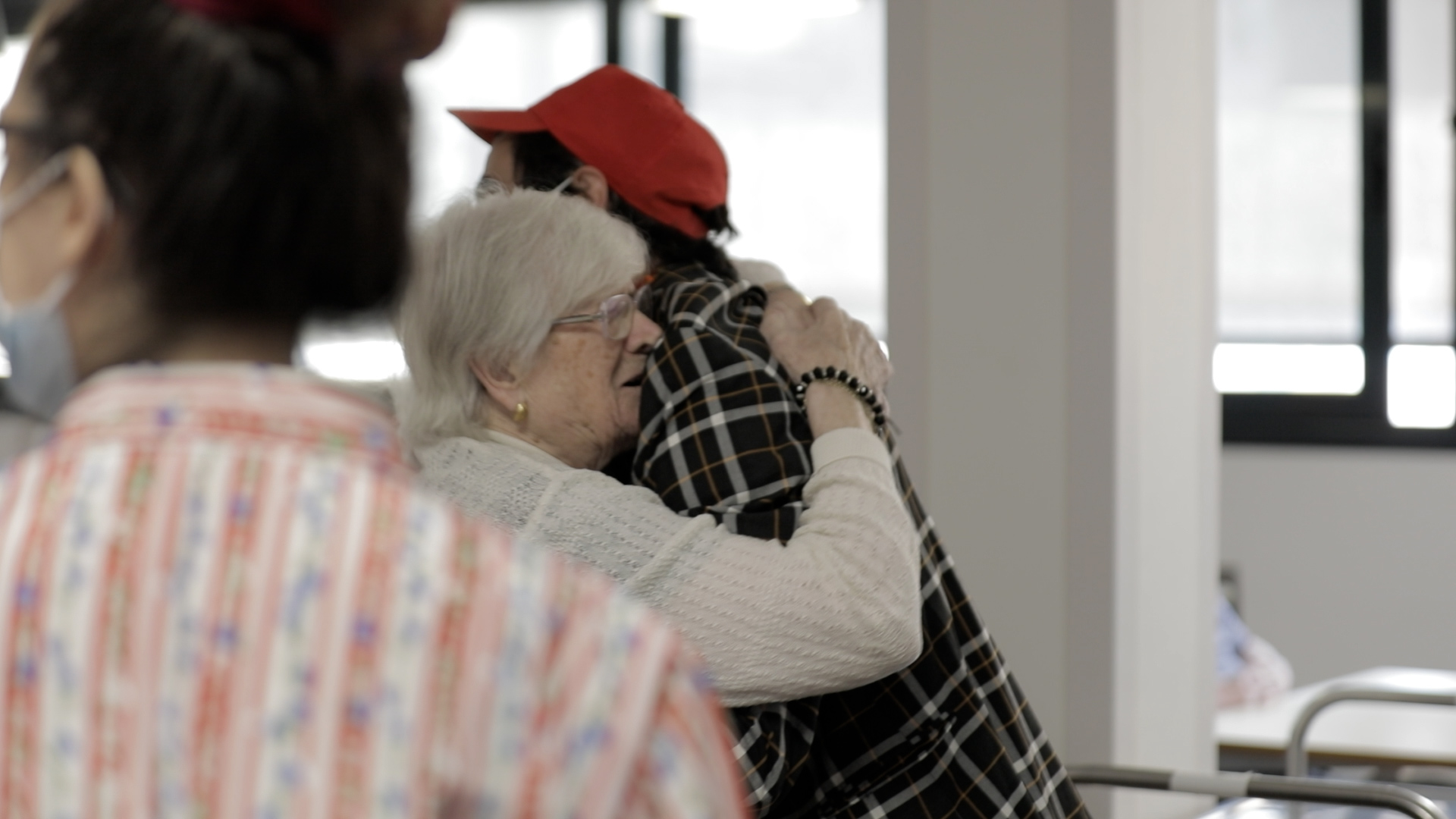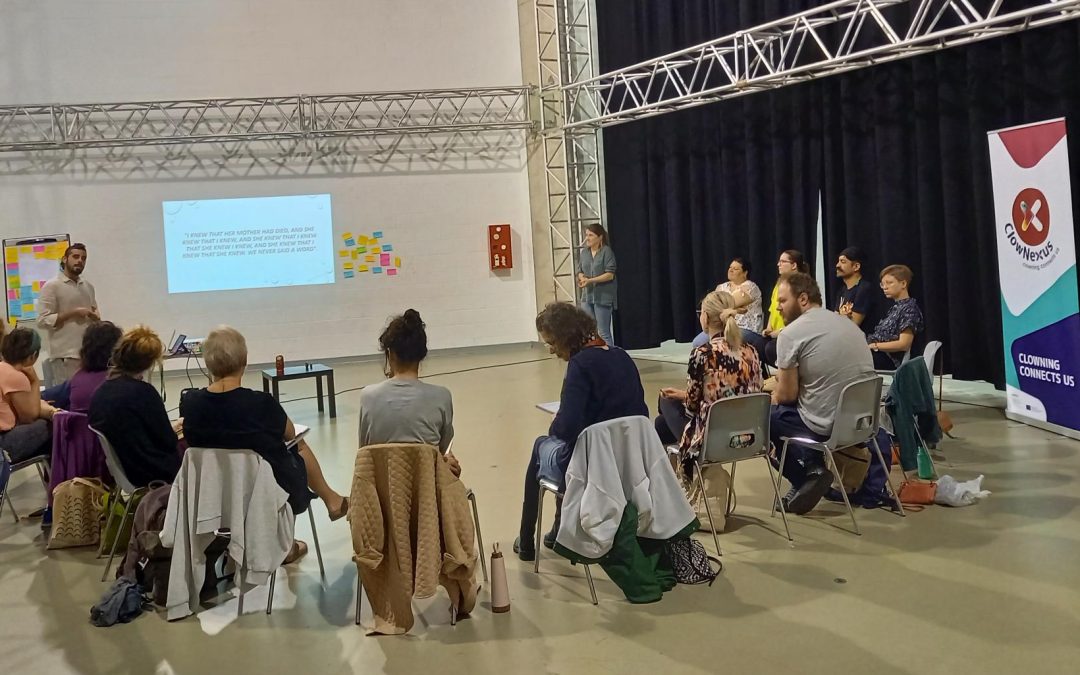How do senior citizens with advanced stages of dementia perceive or remember the death of a beloved person? What signs can we recognize that might indicate that a person with dementia is experiencing grief? How can we best support them?
Read the interview with Ibon Nuñez, Geropsychologist specialized in grief, loss, and trauma intervention.
Older people with dementia experience a progressive loss of cognitive functions such as remembering and thinking. How do they perceive or remember the death of a beloved person?
Ibon Nuñez: Typically, the question is, do they really perceive it? Do they remember the death of a loved one?
The important thing to consider is how it emotionally impacts them to not have that person present in their daily life. Even though the person with dementia may not exactly know who this is – perhaps they don’t know if it’s their child or their partner- but it’s a face, it’s a person that brings comfort, that provides a sense of security.
As studies and literature indicate: individuals with dementia need a routine! Because this routine helps them to have a minimal sense of control. When behaviors occurm that we don’t understand, such as increased agitation or increased aggressiveness, they are often related to a change in the person’s daily routine.
Therefore, the absence of a person who has passed away in the life of a person with dementia is bound to bring about some change. We cannot specify exactly what kind of change it will bring, because it will depend on the individual experiencing dementia and their daily life. But in the end, what we need to consider is that it is a change in their life.
As communication and speaking gets very reduced, what signs do you recognize, that could indicate that older people with dementia are grieving?
Ibon Nuñez: I remember a case of a lady whose husband passed away during the COVID pandemic, and regardless of his passing, the access to the nursing home was completely restricted. She went through changes, and even though she didn’t know that her husband wasn’t there every day helping her with her meals as he used to, she somehow sensed on an emotional level that something had changed, and her attitude shifted accordingly.
The way she expressed herself was changing, as well as the way she communicated, and interacted with other people was significantly different. I am talking about a lady, who, for instance, used to smile a lot, searched for eye contact, and wanted to communicate. Perhaps not verbally, but non-verbally, she communicated in an impressive way.
When we discuss in general what signs we can recognize that might indicate that a person with dementia is experiencing grief, what I would say is a change in behavior, a change in their effectiveness, a change in their way of relating. This might be indicating something.
It’s very challenging to pinpoint a specific pattern for how a person with dementia expresses their grief. It will depend greatly on the individual’s condition, the stage of the neurodegenerative disease, and of course, their connection to the person they’ve lost.
One crucial aspect is that if there’s a change in behavior, and especially if there’s behavior we don’t understand, at the very least, we should pause, observe it, and give it importance, recognizing and validating that something is happening to this person. This is how we can provide support and companionship.
How can staff, but also clowns or other visiting artists best support a person with dementia during a grieving process?
Ibon Nuñez: Not only geriatric caregivers but also the staff working in nursing homes, and, of course, the clowns on an artistic level, a fundamental way to provide companionship is to look at the person experiencing dementia, to look into their eyes. The eyes often reflect the emotion they may be expressing. If they feel sadness, look at them with a sad face, somehow convey that we may be understanding, that we may be empathizing with what they are going through. This brings a sense of security to the person.
Of course, it’s not always necessary to speak in rational terms, to explain what has happened or who has passed away. It’s about recognizing that this person is sad about something, and this acknowledgment can make them feel more accompanied. I believe this is the essence because it’s very challenging to establish a general protocol for how to interact with people with dementia. Each person is entirely different, and we have to adapt to their rational needs.
What’s clear is that we need to make this person feel safe, that we see them, that we visualize them, that we validate them, that we’re not judging them, that we’re not forcing them to express or say something they may not want to. If they are sad, let’s be sad with him or her. Let’s not try to distract and cheer them up because during a moment in the day when we’re providing this expression, feeling accompanied in this expression can autonomously change their emotional management. I’m talking about unconscious and non-rational matters here.
When we want to accompany a person who is grieving and has advanced dementia, the most important things are the gaze, the facial expression, if the person allows it, physical contact, holding their hand or touch their shoulders. And if there is trust, give them a hug. I consider this to be the essence of accompanying a person with dementia who may be experiencing a loss.
Thank you very much for this interview.

photocredits: Pallapupas
This interview was conducted with the help of Yaiza Nieto from Pallapupas.
RED NOSES International





Recent Comments